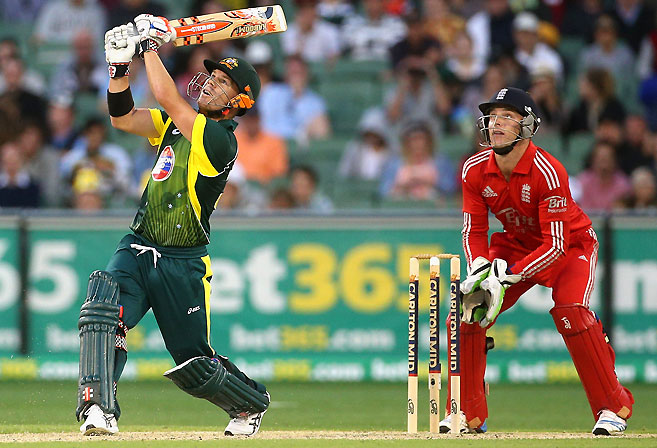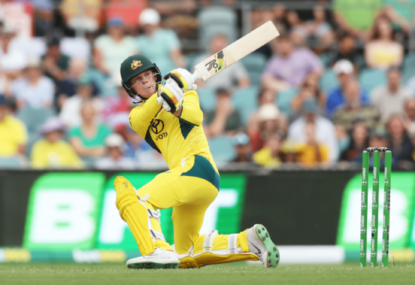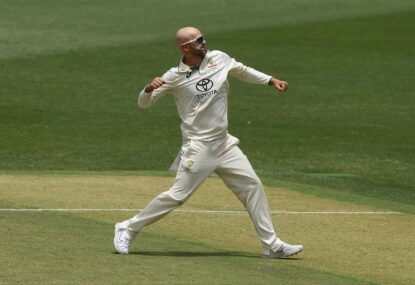Almost two years after former Prime Minister Tony Abbott bestowed a Knighthood of the Order of Australia upon Prince Phillip, is it too late to have this ‘captain’s call’ reversed, because after his exploits in Chittagong last week, I would like to award it to David Andrew Warner.
Insert dodgy Malcolm Turnbull impersonation: “Ladies and gentlemen, it is with great honour that I hereby present to you Sir David of Paddington. For your services to the game of cricket, as a nation we are truly thankful. Now hold this baby while I drink this beer.”
It might appear strange to be heralding the arrival of a man that has already scored more than 5000 runs in Test cricket, however it seems that Warner has finally learnt his lesson and joined the cricketing elite.
In recent months, Warner has come under fire from most sections of the media for his inability to score runs away from home, and graft them when it really mattered. Yet his exploits in the second Test, to secure victory for Australia over Bangladesh by six wickets and to level the series at 1-1, will ensure his cricketing immortality.
Before arriving in Bangladesh late last month, Warner’s average in Asia was a mediocre 33 with only one century to his name from 14 Tests. While Warner’s place in the team was never at stake, his legacy as a great of the game was certainly being questioned.
Warner has also been guilty of other transgressions, including punching Englishman Joe Root in a Birmingham pub, being fined for inappropriate on-field behaviour numerous times, and sending drunken tweets attacking members of the media. These contributed to his ‘bad boy’ tag and were a constant source of frustration. Many were left wondering how it was possible that such a talent could not translate promise into performance.
[latest_videos_strip category=”cricket” name=”Cricket”]
When Australia really needed him, against Sri Lanka in 2016 and in India earlier this year, Warner spent more time on the loo after his lamb vindaloos than in the middle. In fact, prior to his back-to-back tons, in his last 15 innings in Asia, Warner had amassed the abysmal figures of 364 runs at 24.2.
But like most cornered champions, Davy knew that his fortunes needed to change and change fast. Instead of trying to slug his way out of a rut, Warner showed the patience of Job, compiling what many pundits are calling his greatest ever Test innings.
And kudos to our favourite Sydneysider (a Queenslander like Matthew Hayden would have worked it out much more quickly of course): here was a man that wasn’t a great player of spin, not a great occupier of the crease, or a good reader of the state of the game, completely stifling his natural instinct. Davy boy was doing us a solid, dominating in foreign conditions, and all for the good of his cricket-loving country.
Had Australia lost this series 2-0 it would have been demoralising. The old enemy lies in wait and Australia currently sits fifth in the ICC Test rankings. Our last ten Tests have brought about our worst results in 35 years.
Warner has taught us a much-needed lesson: sometimes you need to swallow your pride, put aside your ego and change things up a bit. In Chittagong, not only did Warner prosper in 40⁰C, when Peter Handscomb needed to reach for the Gatorade and Panadol, he put aside his swashbuckling instinct and finally grew a brain.
Warner’s 209-ball ton was by far the slowest century of his career, and his innings lasted in excess of five hours. He hit only seven boundaries, one fewer than Smith’s innings of only 58. Instead of trying to hit the bowler back over his head, he waited, and played the ball late and square without his usual roll of the wrists. He spent ten minutes on 99, and despite a typical Warner brain explosion on 73, his dig had all of the hallmarks of a man who has grown.
This a far cry from the boy who came to our attention by clearing pickets when he scored 89 off 43 balls in a Twenty20 against South Africa in 2009.

AAP Image/Mark Dadswell
But should we be surprised? Warner is used to breaking the mould. After said innings in 2009, Warner groupies wanted to see him thrust straight away into a star-studded NSW shield side. But cricket tragics had other ideas.
“He can’t defend,” they said. “Can only slog,” they said. “Is a flat track bully,” they said.
Yet when he was given his chance against Western Australia, Warner scored a composed 42 and, to be honest, he hasn’t looked back since.
Warner’s Geoffrey Boycott impersonation has also left him in esteemed company, becoming just the third Australian opener after Bob Simpson and Matthew Hayden to score back-to-back hundreds on the subcontinent. It is this type of adaptation and dedication that will hopefully see Sir David educate a few Poms come November 23 in Brisbane.
Finally, Sir David has realised that your bat doesn’t always need to ‘Kaboom’, sometimes it can just pop.






































































































